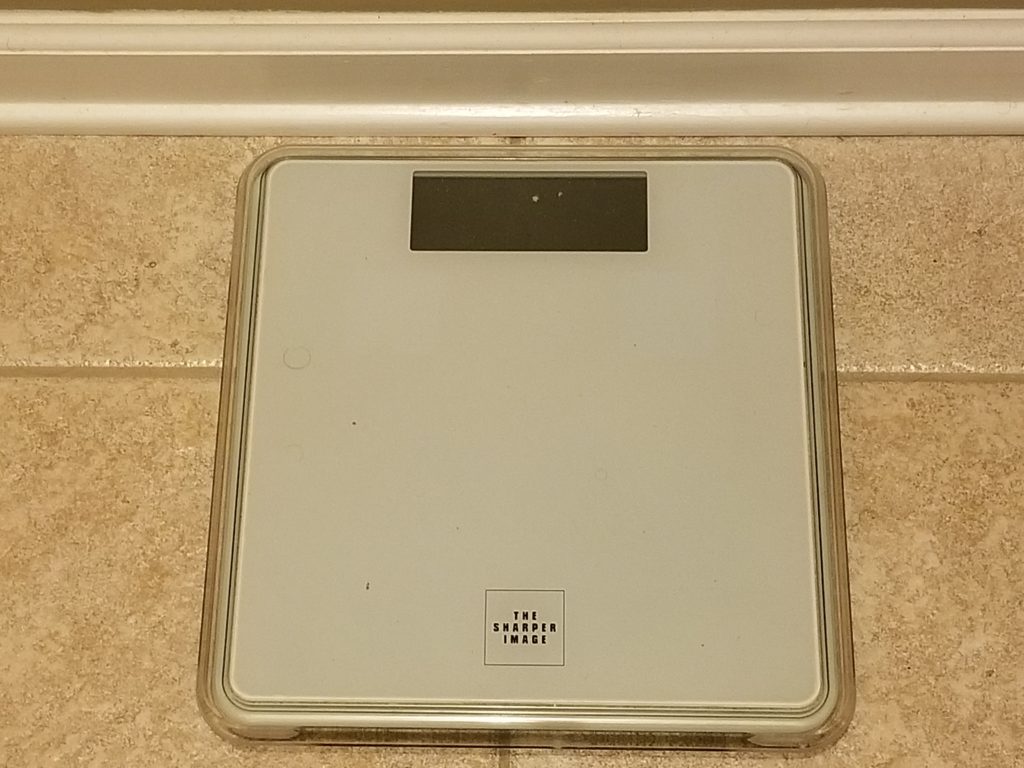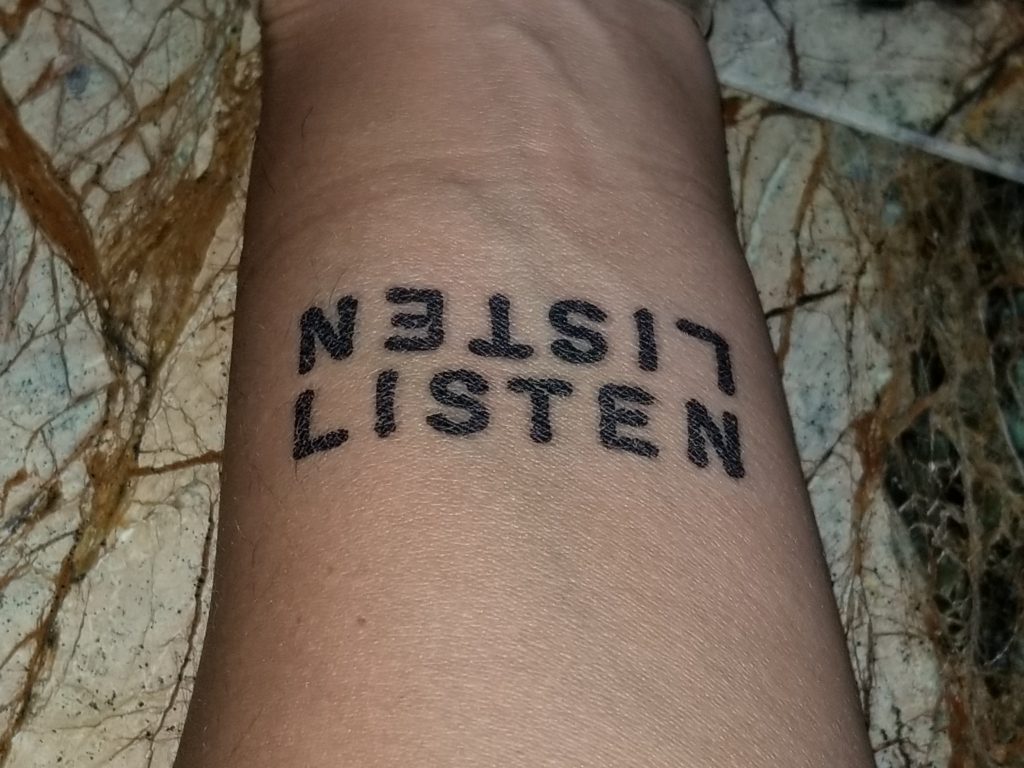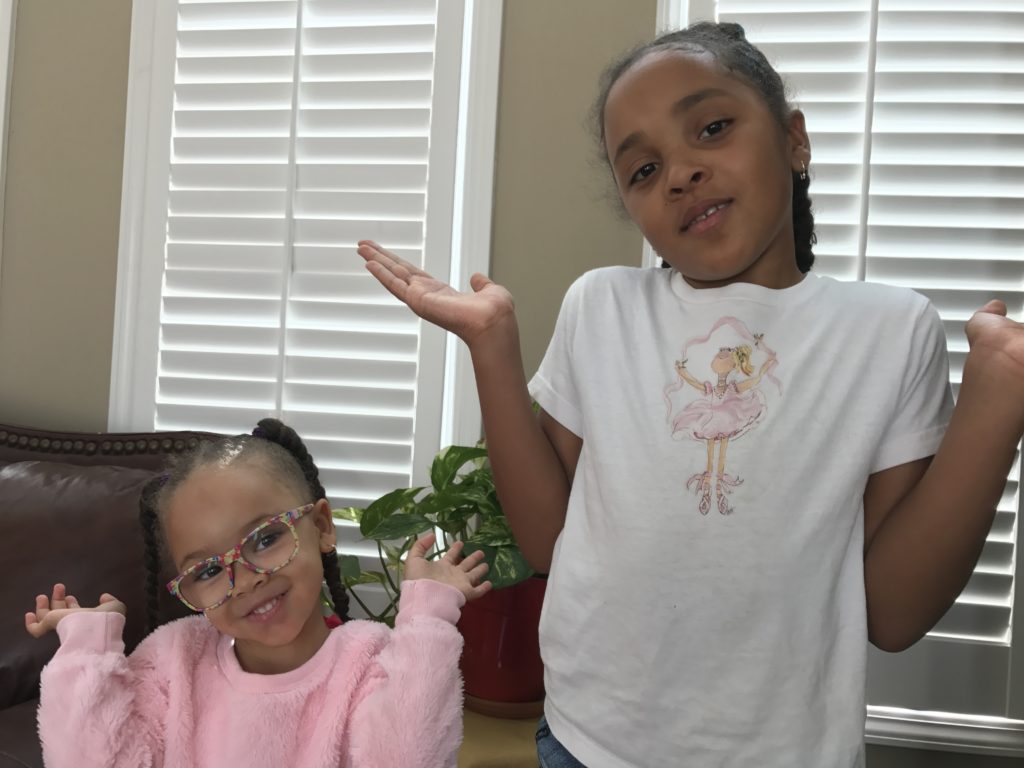This is one of those posts that I’ve dreaded writing.
Seriously. When this topic came up last week and my husband suggested that this was a blog post idea, I immediately resisted. It’s too raw, too emotional, and even embarrassing. How is it that I can be teaching people to eat well, lose weight, take care of themselves, even have lost the weight myself and still have this struggle hanging around? Shouldn’t I have this all together by now?
Apparently not.
Let me explain. Since my fourth (and last!) child was born, I noticed that the weight didn’t come off as easily as after the twins were born. I figured that it was because I was older and getting closer to forty. But most of it came off and I was following the same pattern of eating that I did to lose the weight in the first place – eating when hungry, stopping when full, relying on my God-given signals when when and how much to eat. I wrote about it in my first blog post – you can read about it here.
Eating this way helped me lose the weight the first time, and get if off again after the twins. The struggle came in when I was in maintenance mode. Instead of continuing to focus on those same signals for hunger and fullness, I started to try to work the system. I noticed that if I fasted for most of the day, the scale would be down in the morning, even if I ate a little too much at night. Then I decided that I probably should eat a mid-morning snack and dinner only each day. That seemed like it would work for me to lose a few more pounds. Then I figured out that if I had coffee with cream in the mornings and drank warm drinks, I could skip the snacking and maybe just get to dinner with a small piece of chocolate in the afternoon.
Public service announcement: If you don’t see it just by reading the description, what I’ve written above is a dysfunctional eating pattern. Many of you will have spotted this, but I have some younger readers who might not understand this. I do NOT recommend eating this way.

It didn’t work anyway. Not in the long run. Around this time I also started my integrative nutrition school program and was encouraged to try the different eating styles I was studying to see how my body felt while I fed it these ways. While it was good for me to experience what I might teach others, focusing on eating plans instead of hunger and fullness gave me more dependence on my own intelligence than on the wisdom of hunger and fullness.
So when I watched the scale creep up a few pounds each year for the past couple of years, I thought it was being in my forties that was doing it. I hear it all the time from my patients, so I thought I was experiencing the same thing everyone else does. So I focused on weight lifting to increase my muscle mass. I ate more frequently to boost my metabolism. I cut out sugar. The scale didn’t move.

Archenemy or information gatherer?
So I did what I should have done in the first place: I prayed and meditated. The answer came immediately, just very quietly. You know, God speaks to us in a whisper (1 Kings 19:11-13). He said that I knew what to do. I needed to listen to him for when to eat and when to stop, and not be distracted by all the other noise around food and diets. The busyness of my life could not be an excuse to follow my own prescription and ignore hunger and fullness. I needed to pay attention and focus so I could know when to eat and when to stop.
But I didn’t want to do it. Why? Because I was afraid. I liked making my food plan and having control over what I’d eat that day. I liked thinking that I could cook my healthy food and that eating it was the reason I would keep the weight off (even if I could see that it wasn’t true). I liked carrying snacks in my bag as a safety net in case I got hungry. See, I don’t like the feeling of my stomach gnawing in hunger. And there it was, the entire problem.
I had decided that the feeling of hunger was a bad thing. It was uncomfortable, unpleasant, annoying, and to be avoided at all costs. I could keep it away with eating on schedule (even if I wasn’t hungry), by snacking between meals, by sipping on coffee throughout the morning. By deciding that hunger was something bad, I felt negative emotions about hunger, so I did what I could to keep it away. And the weight stayed on.
There was another choice: I could choose to identify hunger as the signal that God was connecting with me. It could be a really good thing! If I waited to feel true hunger, then God had the chance to direct my eating instead of me taking over control. The start had to be with letting go of my thought that hunger is bad, and waiting for the next true hunger signal. I pulled out my notebooks from when I lost the weight and refocused. I reminded myself how to think: Hunger is a God-given signal, I like to be in control, and taking control of my eating from God causes me to gain weight. I started each morning this way, resetting my mind and listening.

This is how we are. When we want something, it’s hard to wait. My kids are already counting the days to Christmas and if they could manipulate time and the calendar, they would do it. As adults, we can take more control over parts of our lives than we can as children and we like it. We don’t like to get hungry – for anything. We want a new purse, we buy it. A TV that costs thousands? We’ll just put it on the credit card. There’s a show that we want to watch? We’ll stay up all night and binge watch, no matter the fatigue and fog and grumpiness we bring to the next day. We want to be comfortable, and hunger isn’t comfortable. So we grab and we get what we want, when we want it, and we don’t want to wait. When our kids do this, my husband and I discipline them. We teach them to wait, and we put limits on them when they can’t do it for themselves. We set the bedtimes and limit the sugar. But who sets our limits now?

For many of us, we are the only limit to what we want. Our self control is the limit. The problem is that we are human and fallible and weak sometimes. Some of us are very self disciplined, but there’s always something that tempts us to go further than we should. For me, it’s my eating. For someone else it may be recreation or spending or drinking or whatever. Someone greater than us has to be the authority to keep our appetites in check. If we don’t have that to submit to, to obey when we want to go off the rails, then our appetites rule us.
So I’m back to listening for the whisper. And He keeps speaking. That was the most thrilling thing I discovered when I stopped being in control and waited: He still wanted to help me! I’d reach for a cookie or an extra bite when I was getting full and I kid you not, I’d hear the tiniest whisper saying, “Are you sure you want to do that?” I know, sounds a little crazy, but I know God was helping me. I’m so grateful God still wants to talk to me, even though I wandered off trying to control my weight my own way! And slowly, the scale is creeping down. And yes, it’s slower than when I was in my 30’s. I also have less to lose this time, so it’s going to be slower. And I can put it right back on by eating however I want, so I have to remember who I want to be in control and submit. Because in the end, that’s what I really want, more than cookies, more than an extra bite of food. I want to be close to God, so I choose to wait and experience hunger as a reminder of our relationship. I would rather be with Him than the food.
What do you have trouble waiting for? What kind of hunger do you try to avoid? Please share the comments below!

Comments1
Another beautiful post Andrea! Love, Nike